Critical Theory
Critical Theory

Philosophy for Spiders: On the Low Theory of Kathy Acker
McKenzie Wark combines an autobiographical account of her relationship with Kathy Acker with her transgender reading of Acker's writing to outline Acker's philosophy of embodiment and its importance for theorizing the trans experience.
Over the decades readers have found a punk Acker, a feminist Acker, a queer Acker, a kink Acker, and an avant-garde Acker. In Philosophy for Spiders, McKenzie Wark adds a trans Acker.
Wark recounts her memories of Acker (with whom she had a passionate affair) and gives a comprehensive reading of her published and archived works. Wark finds not just an inventive writer of fiction who pressed against the boundaries of gender but a theorist whose comprehensive philosophy of life brings a conceptual intelligence to the everyday life of those usually excluded from philosophy's purview.
As Wark shows, Acker's engagement with topics such as masturbation, sadism, body-building, and penetrative sex are central to her distinct phenomenology of the body that theorizes the body's relation to others, the city, and technology.

The Gloria Anzaldúa Reader
AnaLouise Keating, Gloria Anzaldua
A collection of published and unpublished writings of the groundbreaking Chicana writer and self-described "chicana dyke-feminist, tejana patlache poet, writer and cultural theorist" Gloria Anzaldua.
Gloria Anzaldúa (1942-2004) was a visionary writer whose work was recognized with many honors, including the Before Columbus Foundation American Book Award, a Lambda literary award, the National Endowment for the Arts Fiction Award, and the Bode-Pearson Prize for Outstanding Contributions to American Studies. Her book Borderlands/La frontera was selected as one of the 100 Best Books of the Century by Hungry Mind Review and the Utne Reader. AnaLouise Keating, Professor of Women's Studies at Texas Woman's University, is the author of Women Reading, Women Writing: Self-Invention in Paula Gunn Allen, Gloria Anzaldúa, and Audre Lorde; editor of Anzaldúa's Interviews/Entrevistas and EntreMundos/AmongWorlds: New Perspectives on Gloria Anzaldúa; and co-editor, with Anzaldúa, of this bridge we call home: radical visions for transformation.
AnaLouise Keating, Professor of Women's Studies at Texas Woman's University, is the author of Women Reading, Women Writing: Self-Invention in Paula Gunn Allen, Gloria Anzaldúa, and Audre Lorde; editor of Anzaldúa's Interviews/Entrevistas and EntreMundos/AmongWorlds: New Perspectives on Gloria Anzaldúa; and co-editor, with Anzaldúa, of this bridge we call home: radical visions for transformation.

Patriarchy of the Wage: Notes on Marx, Gender, and Feminism
In Patriarchy of the Wage, Silvia Federici, bestselling author and the most important Marxist feminist of our era, asks why Marx's crucial analysis of the exploitation of human labor was blind to women's work and struggle on the terrain of social reproduction. Why was Marx unable to anticipate the profound transformations in the proletarian family that took place at the turn of the nineteenth century creating a new patriarchal regime? Patriarchy of the Wage does more than just redefine classical Marxism. It is an urgent call for a new kind of radical politics.

On Immunity: An Inoculation
Upon becoming a new mother, Eula Biss addresses a chronic condition of fear: fear of the government, the medical establishment, and what is in children's food, mattresses, medicines, and vaccines. Biss investigates the metaphors and myths surrounding the conception of immunity and its implications for the individual and the social body. As she hears more and more fears about vaccines, Biss researches what they mean for her own child, her immediate community, America, and the world.
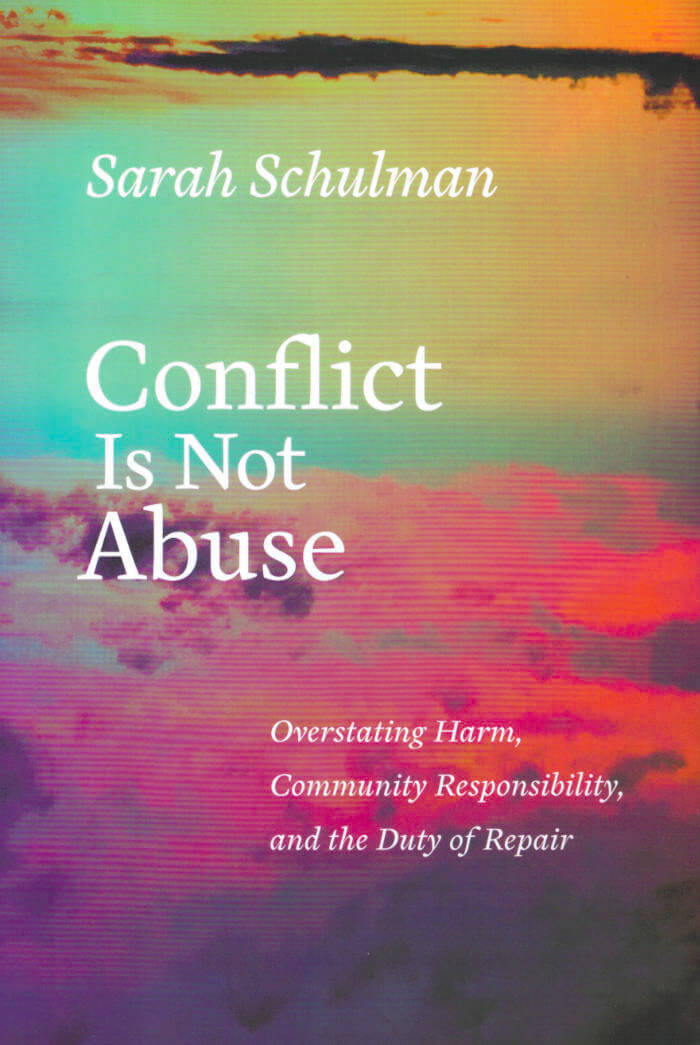
Conflict Is Not Abuse
From intimate relationships to global politics, Sarah Schulman observes a continuum: that inflated accusations of harm are used to avoid accountability. Illuminating the difference between Conflict and Abuse, Schulman directly addresses our contemporary culture of scapegoating. This deep, brave, and bold work reveals how punishment replaces personal and collective self-criticism, and shows why difference is so often used to justify cruelty and shunning.
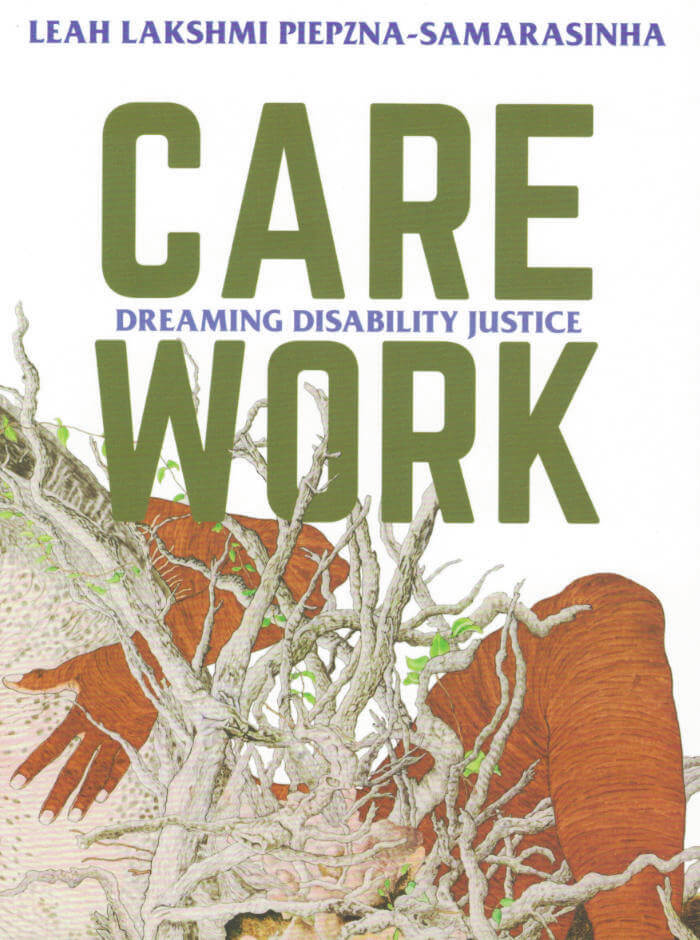
Care Work
Leah Lakshmi Piepzna-Samarasinha
Lambda Literary Award winning poet and essayist and long-time disability justice advocate Leah Piepzna-Samarasinha writes passionately and personally about disability justice in her latest book of essays. Discussing subjects such as the creation of care webs, collective access, and radically accessible spaces, she also imparts her own survivor skills and wisdom based on her years of activist work, empowering the disabled - in particular, those in queer and/or BIPOC communities - and granting them the necessary tools by which they can imagine a future where no one is left behind.
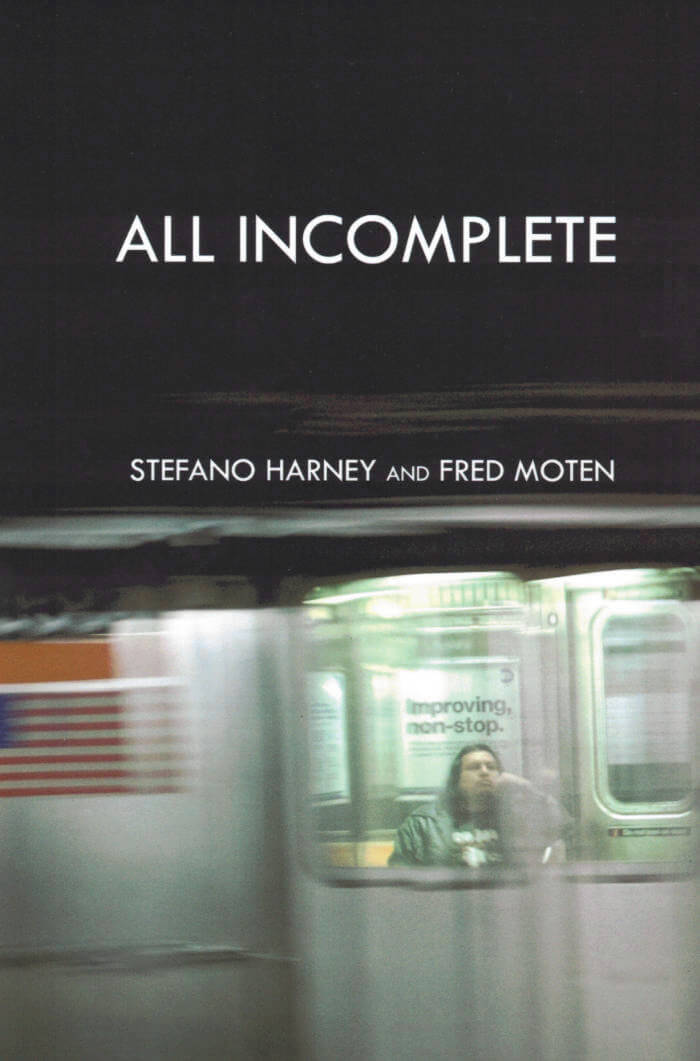
All Incomplete
Building on the ideas Harney and Moten developed in The Undercommons, All Incomplete extends the critical investigation of logistics, individuation and sovereignty. It reflects their chances to travel, listen and deepen their commitment to and claim upon partiality. All Incomplete studies the history of a preference for the force and ground and underground of social existence.
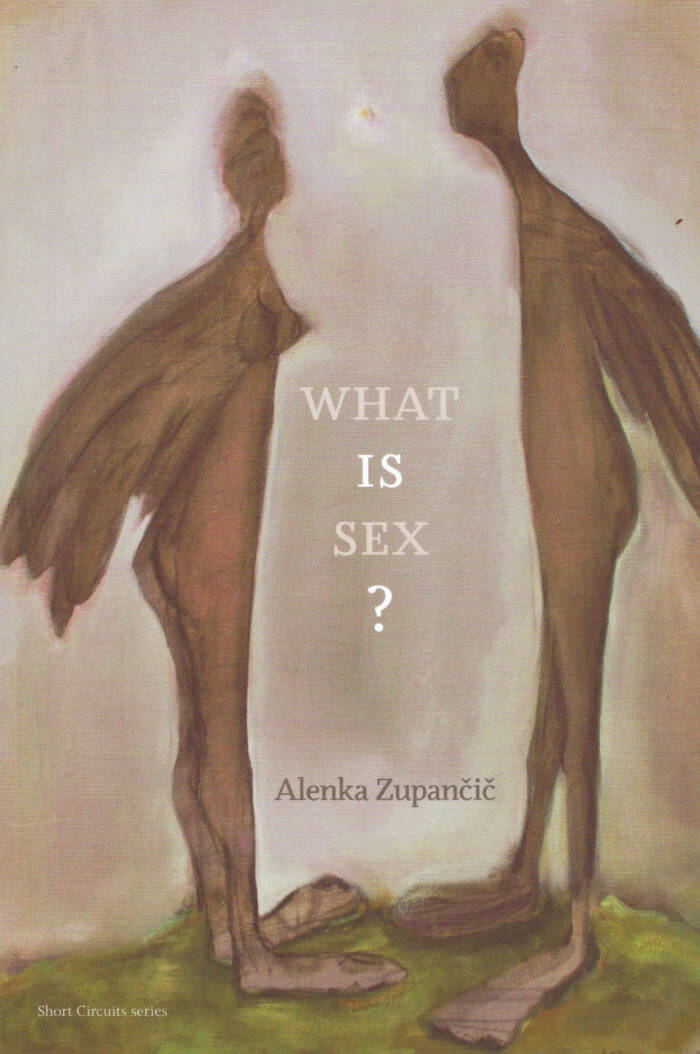
What Is Sex?
Why sexuality is at the point of a "short circuit" between ontology and epistemology.
Consider sublimation, conventionally understood as a substitute satisfaction for missing sexual satisfaction. But what if, as Lacan claims, we can get exactly the same satisfaction that we get from sex from talking (or writing, painting, praying, or other activities)? The point is not to explain the satisfaction from talking by pointing to its sexual origin, but that the satisfaction from talking is itself sexual. The satisfaction from talking contains a key to sexual satisfaction (and not the other way around), even a key to sexuality itself and its inherent contradictions. The Lacanian perspective would make the answer to the simple-seeming question, "What is sex?" rather more complex. In this volume in the Short Circuits series, Alenka Zupančič approaches the question from just this perspective, considering sexuality a properly philosophical problem for psychoanalysis; and by psychoanalysis, she means that of Freud and Lacan, not that of the kind of clinician practitioners called by Lacan "orthopedists of the unconscious."
Zupančič argues that sexuality is at the point of a "short circuit" between ontology and epistemology. Sexuality and knowledge are structured around a fundamental negativity, which unites them at the point of the unconscious. The unconscious (as linked to sexuality) is the concept of an inherent link between being and knowledge in their very negativity.

Where Do You Draw The Line Between Art and Politics
Where Do You Draw The Line Between Art and Politics? consists of a series of interviews with individuals who have been active in various capacities at the intersection of art and politics. Between historical documentation, political memory, dialogic reflections and motivational support, the publication focuses on the experiences, commitments, and feelings that animate and inform aesthetic priorities in social spaces both within and outside of art institutions; a repository designed to inspire and enourage the politicization of aesthetics, as opposed to the aestheticization of politics.
Davide Tidoni is an artist and researcher working with sound and listening. With a particular focus on direct experience, observation, and action, he creates works of different formats that include live performance, intervention, walk, video, audio recording, and text scores. He is interested in the use of sound and music in counter-culture and political struggles and has published a sound based field research on the northern italian ultras group Brescia 1911 (The Sound of Normalisation, 2018).
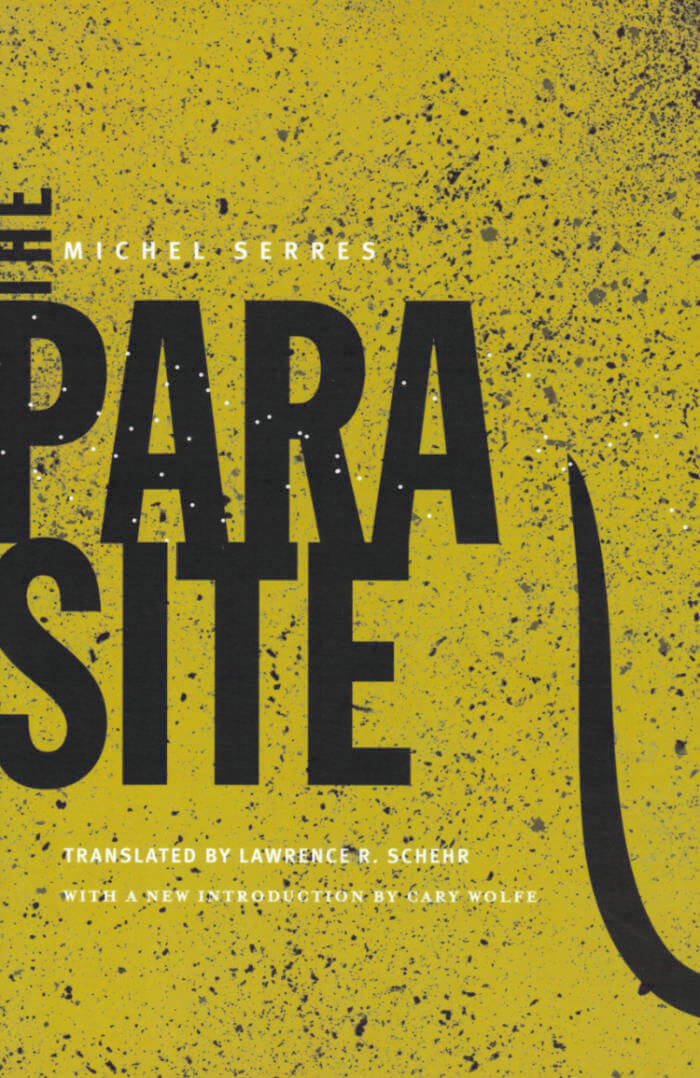
The Parasite
Influential philosopher Michel Serres’s foundational work uses fable to explore how human relations are identical to that of the parasite to the host body. Among Serres’s arguments is that by being pests, minor groups can become major players in public dialogue, creating diversity and complexity vital to human life and thought.

Ethical Portraits: In Search Of Representational Justice
Ethical Portraits investigates the representation of the incarcerated in the U.S. criminal justice system. Through interviews, creative non-fiction, and cultural theory, Hatty Nestor deconstructs a range of different prison portraiture.
Prisons systematically dehumanise the imprisoned. Visualised through mugshots and surveillance recordings, the incarcerated lose control of their own image and identity. The criminal justice system in the United States does not only carry out so-called justice in ways that compound inequality, it also minimises the possibility for empathetic encounters with those who are most marginalised. It is therefore urgent to understand how prisoners are portrayed by the carceral state and how this might be countered or recuperated. How can understanding the visual representation of prisoners help us confront the invisible forms of power in the American prison system? Ethical Portraits investigates the representation of the incarcerated in the United States criminal justice system, and the state's failure to represent those incarcerated humanely.
Through wide-ranging interviews and creative nonfiction, Hatty Nestor deconstructs the different roles of prison portraiture, such as in courtroom sketches, DNA profiling, and the incarceration of Chelsea Manning. Includes a foreword by Jackie Wang.
Hatty Nestor is a cultural critic and writer, published in Frieze, The Times Literary Supplement, The White Review and many other publications. She is currently completing a PhD at Birkbeck, University of London.
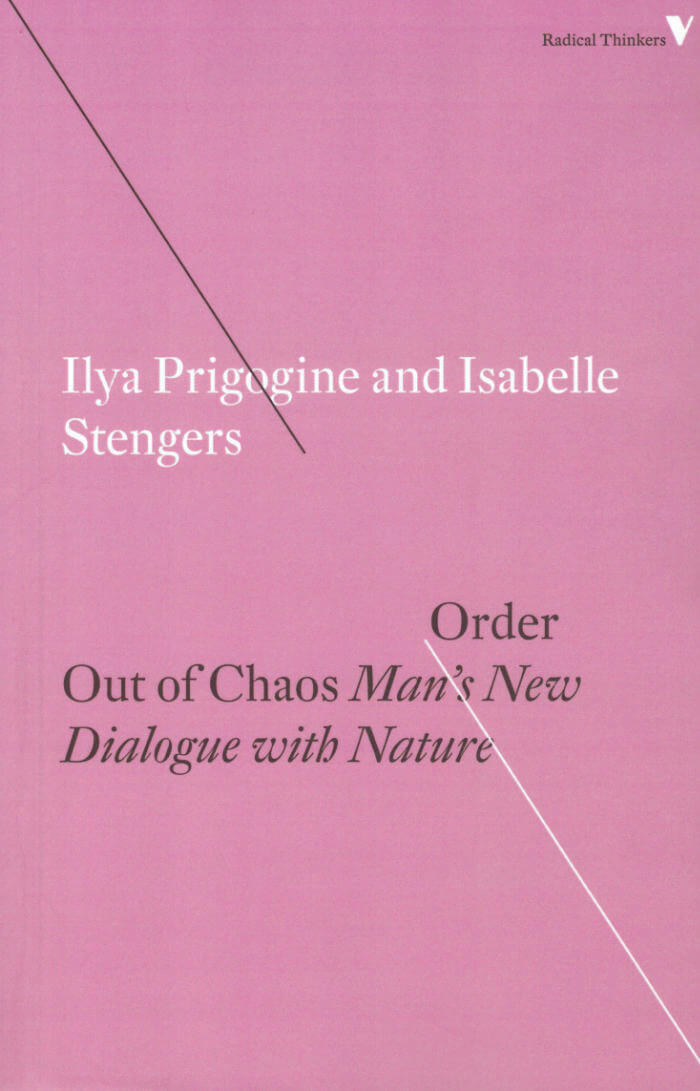
Order Out of Chaos: Man’s New Dialogue with Nature
Ilya Prigogine, Isabelle Stengers
A pioneering book that shows how the two great themes of classic science, order and chaos, are being reconciled in a new and unexpected synthesis.
Order Out of Chaos is a sweeping critique of the discordant landscape created by modern scientific knowledge. An exciting and accessible account of the philosophical implications of thermodynamics, it brings contradictory philosophies of time and chance into a novel and ambitious synthesis. Since its first publication in 1978, this book has sparked debate among physicists, philosophers, literary critics and historians.

The Corona Crash
Free market, competitive capitalism is dead. The separation between politics and economics can no longer be sustained.
In The Corona Crash, leading economics commentator Grace Blakeley theorises about the epoch-making changes that the coronavirus brings in its wake.
We are living through a unique moment in history. The pandemic has caused the deepest global recession since the Second World War. Meanwhile the human cost is reflected in a still-rising death toll, as many states find themselves unable—and some unwilling—to grapple with the effects of the virus. Whatever happens, we can never go back to business as usual.
This crisis will tip us into a new era of monopoly capitalism, argues Blakeley, as the corporate economy collapses into the arms of the state, and the tech giants grow to unprecedented proportions.
We need a radical response. The recovery could see the transformation of our political, economic, and social systems based on the principles of the Green New Deal. If not, the alternatives, as Blakeley warns, may be even worse than we feared.
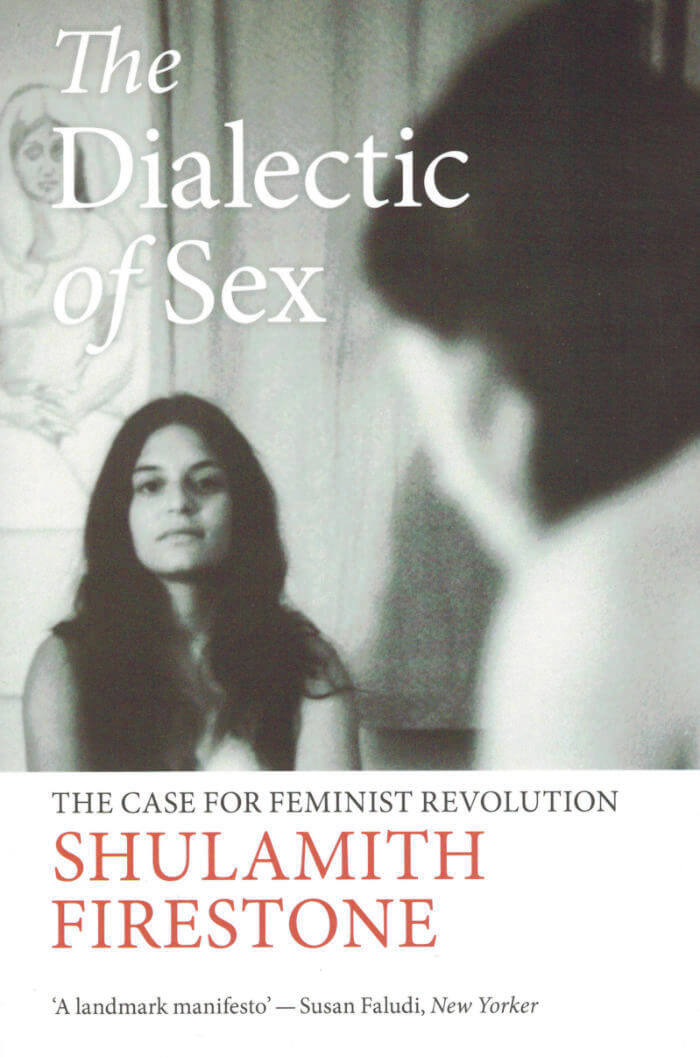
The Dialectic of Sex
An international bestseller, originally published in 1970, when Shulamith Firestone was just twenty-five years old, The Dialectic of Sex was the first book of the women’s liberation movement to put forth a feminist theory of politics.
Beginning with a look at the radical and grassroots history of the first wave (with its foundation in the abolition movement of the time), Firestone documents its major victory, the expansion of the franchise in 1920, and the fifty years of ridicule that followed. She goes on to deftly synthesize the work of Freud, Marx, de Beauvoir, and Engels to create a cogent argument for feminist revolution.
Ultimately she presents feminism as the key radical ideology, the missing link between Marx and Freud, uniting their visions of the political and the personal. The Dialectic of Sex remains remarkably relevant today—a testament to Firestone’s startlingly prescient vision. The author died in 2012, but her ideas live on through this extraordinary book.
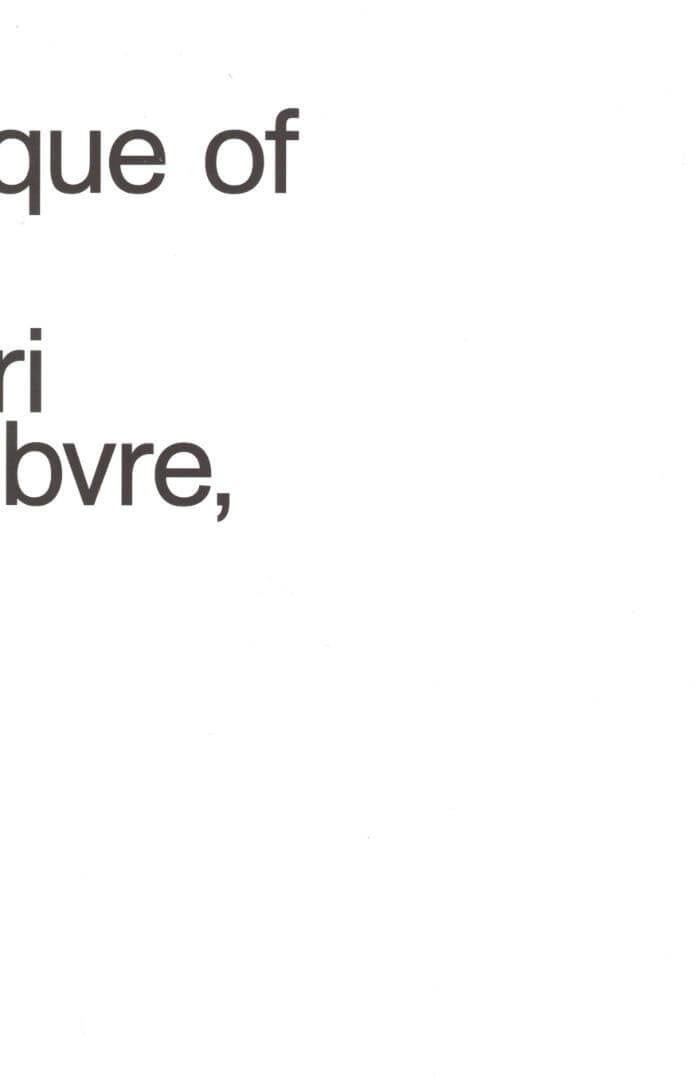
Critique of Everyday Life
Lefebvre's classic analysis of daily life under capitalism in one complete volume.
The three-volume text by Henri Lefebvre is perhaps the richest, most prescient work about modern capitalism to emerge from one of the twentieth century's greatest philosophers and is now available for the first time in one complete volume. Written at the birth of post-war consumerism, Critique was an inspiration for the 1968 student revolution in France. It is a founding text of cultural studies and a major influence on the fields of contemporary philosophy, geography, sociology, architecture, political theory and urbanism. Lefebvre takes as his starting point and guide the "trivial" details of quotidian experience: an experience colonized by the commodity, shadowed by inauthenticity, yet remaining the only source of resistance and change. This is an enduringly radical text, untimely today only in its intransigence and optimism.

Darkwater: Voices from Within the Veil
The distinguished American civil rights leader, W. E. B. Du Bois first published these fiery essays, sketches, and poems individually nearly 80 years ago in the Atlantic, the Journal of Race Development, and other periodicals. Part essay, part autobiography, Darkwaterexplicitly addresses significant issues, such as the oppression of women and Eurocentric standards of beauty, the historical rise of the idea of whiteness, and the abridgement of democracy along race, class, and gender lines. Reflecting the author’s ideas as a politician, historian, and artist, this volume has long moved and inspired readers with its militant cry for social, political, and economic reforms for black Americans.

The Return of the Political
In this work, Mouffe argues that liberal democracy misunderstands the problems of ethnic, religious and nationalist conflicts because of its inadequate conception of politics. He suggests that the democratic revolution may be jeopardized by a lack of understanding of citizenship, community and pluralism. Mouffe examines the work of Schmidt and Rawls and explores feminist theory, in an attempt to place the project of radical and plural democracy on a more adequate foundation than is provided by liberal theory.

The Rise and Decline of Patriarchal Systems
In this groundbreaking new work, Nancy Folbre builds on a critique and reformulation of Marxian political economy, drawing on a larger body of scientific research, including neoclassical economics, sociology, psychology, and evolutionary biology, to answer the defining question of feminist political economy: why is gender inequality so pervasive? In part, because of the contradictory effects of capitalist development: on the one hand, rapid technological change has improved living standards and increased the scope for individual choice for women; on the other, increased inequality and the weakening of families and communities have reconfigured gender inequalities, leaving caregivers particularly vulnerable.
The Rise and Decline of Patriarchal Systems examines why care work is generally unrewarded in a market economy, calling attention to the non-market processes of childbearing, childrearing and the care of other dependents, the inheritance of assets, and the use of force and violence to appropriate both physical and human resources. Exploring intersecting inequalities based on class, gender, age, race/ethnicity, and citizenship, and their implications for political coalitions, it sets a new feminist agenda for the twenty-first century.
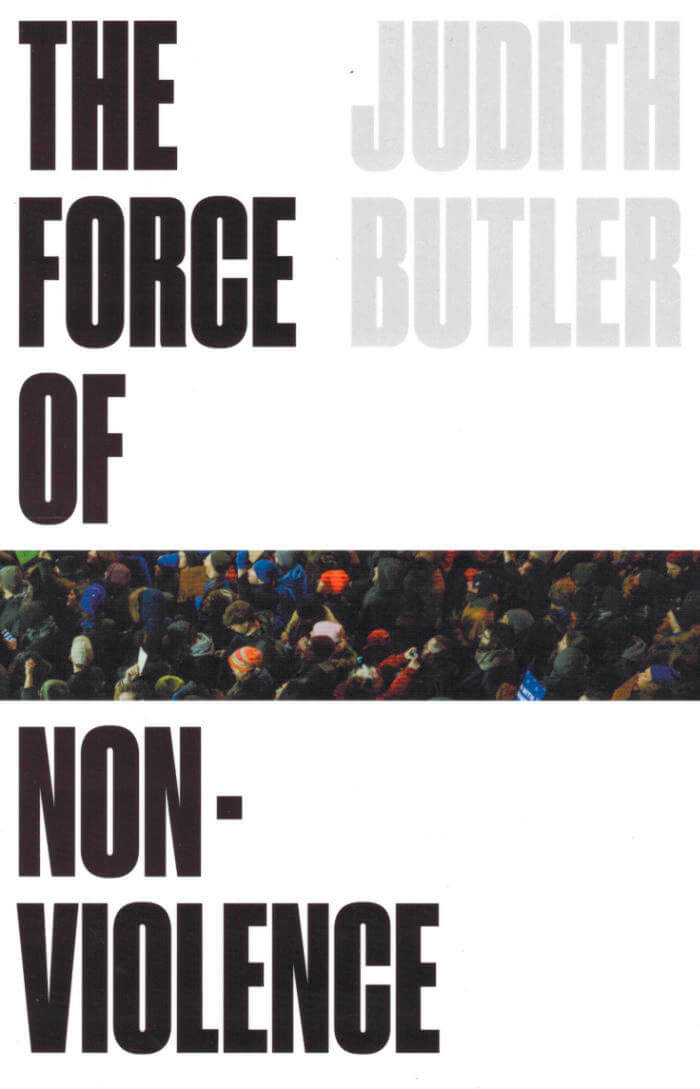
The Force of Nonviolence (paperback)
Judith Butler's new book shows how an ethic of nonviolence must be connected to a broader political struggle for social equality. Further, it argues that nonviolence is often misunderstood as a passive practice that emanates from a calm region of the soul, or as an individualist ethical relation to existing forms of power. But, in fact, nonviolence is an ethical position found in the midst of the political field. An aggressive form of nonviolence accepts that hostility is part of our psychic constitution, but values ambivalence as a way of checking the conversion of aggression into violence. One contemporary challenge to a politics of nonviolence points out that there is a difference of opinion on what counts as violence and nonviolence. The distinction between them can be mobilized in the service of ratifying the state's monopoly on violence.
Considering nonviolence as an ethical problem within a political philosophy requires a critique of individualism as well as an understanding of the psychosocial dimensions of violence. Butler draws upon Foucault, Fanon, Freud, and Benjamin to consider how the interdiction against violence fails to include lives regarded as ungrievable. By considering how "racial phantasms" inform justifications of state and administrative violence, Butler tracks how violence is often attributed to those who are most severely exposed to its lethal effects. The struggle for nonviolence is found in movements for social transformation that reframe the grievability of lives in light of social equality and whose ethical claims follow from an insight into the interdependency of life as the basis of social and political equality.
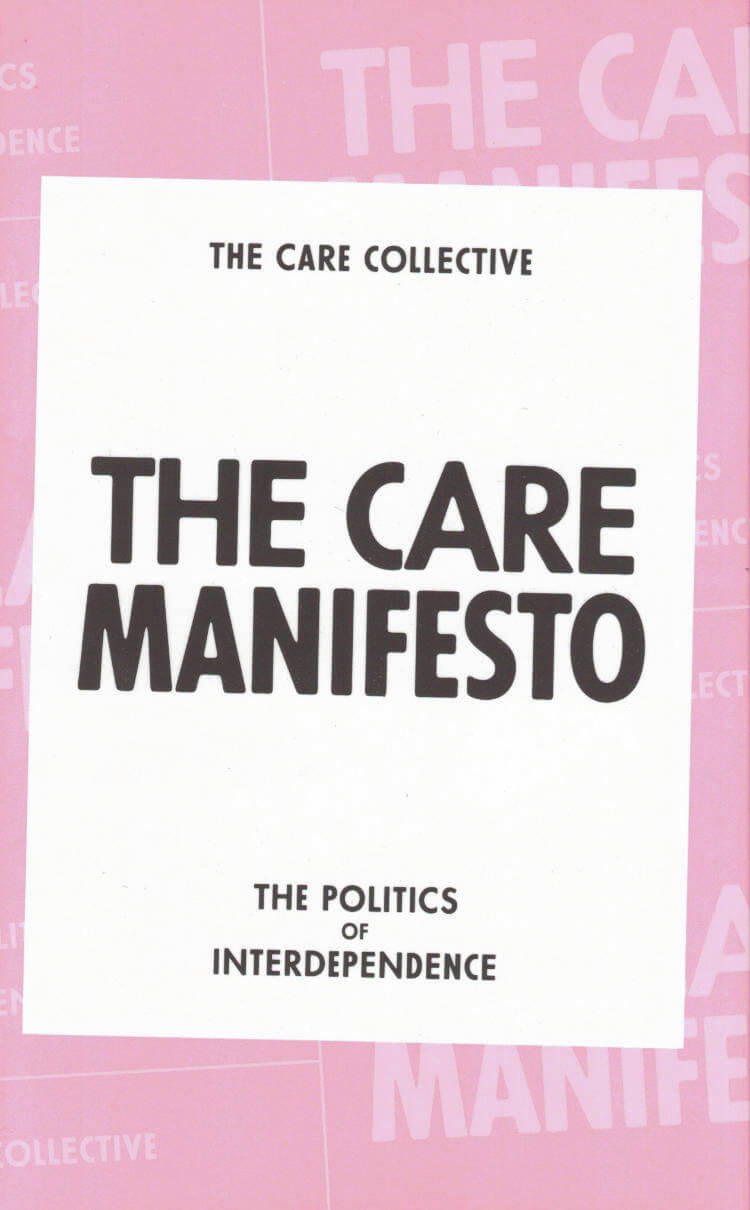
The Care Manifesto: The Politics of Interdependence
The Care Manifesto puts care at the heart of the debates of our current crisis: from intimate care—childcare, healthcare, elder care—to care for the natural world. We live in a world where carelessness reigns, but it does not have to be this way.
The Care Manifesto puts forth a vision for a truly caring world. The authors want to reimagine the role of care in our everyday lives, making it the organising principle in every dimension and at every scale of life. We are all dependent on each other, and only by nurturing these interdependencies can we cultivate a world in which each and every one of us can not only live but thrive.
The Care Manifesto demands that we must put care at the heart of the state and the economy. A caring government must promote collective joy, not the satisfaction of individual desire. This means the transformation of how we organise work through co-operatives, localism and nationalisation. It proposes the expansion of our understanding of kinship for a more 'promiscuous care'. It calls for caring places through the reclamation of public space, to make a more convivial city. It sets out an agenda for the environment, most urgent of all, putting care at the centre of our relationship to the natural world.
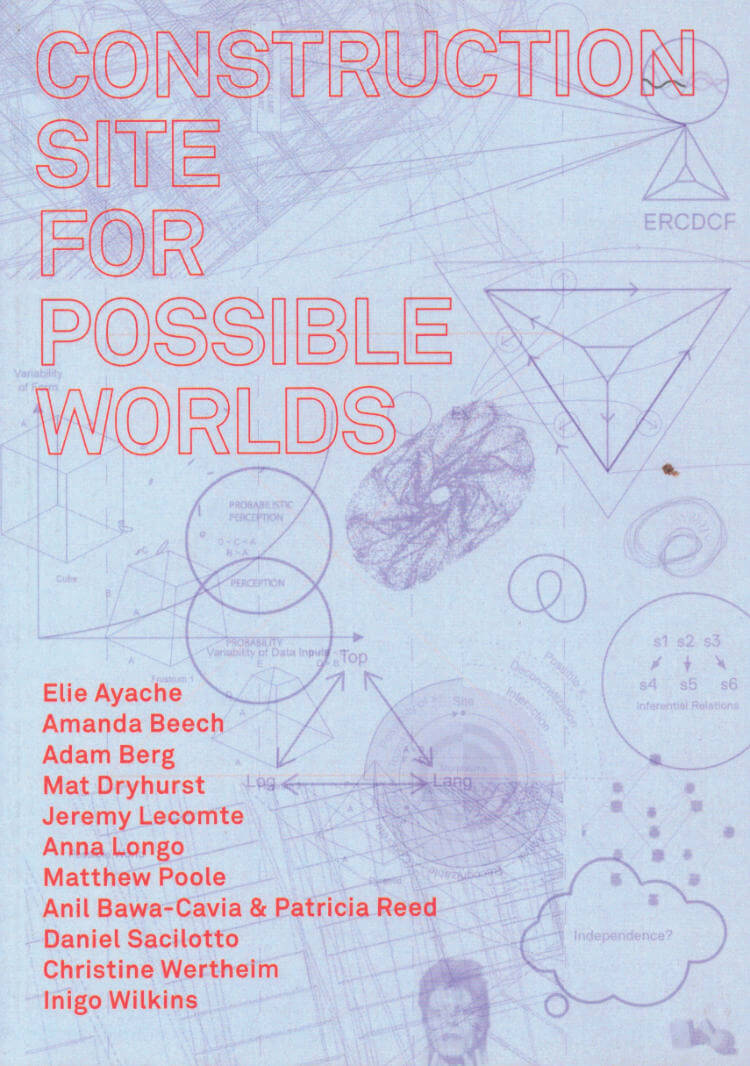
Construction Site For Possible Worlds
James Wiltgen, Robin MacKay and 1 more
Perspectives from philosophy, aesthetics, and art on how to envisage the construction site of possible worlds.
Given the highly coercive and heavily surveilled dynamics of the present moment, when the tremendous pressures exerted by capital on contemporary life produces an aggressively normative "official reality," the question of the construction of other possible worlds is crucial and perhaps more urgent than ever.
This collection brings together different perspectives from the fields of philosophy, aesthetics, and art to discuss the mechanisms through which possible worlds are thought, constructed, and instantiated, forcefully seeking to overcome the contemporary moment's deficit of conceptualizing alternate realities—its apparent fear of imagining possible new and compelling futures—to begin the arduous task of producing the political dynamics necessary for actual construction.
Implicit in this dynamic between the imaginary and the possible is the question of how thinking intertwines with both rationality and the inherited contingencies and structures of the world. With no ascertainable ground on which to build, with no confidence in any given that could guarantee our labors, how do we even envisage the construction site(s) of possible worlds, and with what kind of diagrams, tools, and languages can we bring them into being?
Amanda Beech is an artist and writer based in Los Angeles.
Robin Mackay is a philosopher, Director of the UK arts organization Urbanomic, and Associate Researcher at Goldsmiths University of London.
James Wiltgen is a Lecturer at the California Institute of the Arts.
Inigo Wilkins is Codirector of Glass Bead. He has published articles on sonic culture and other topics in such journals as Litteraria Pragensia, Mute Magazine, and HFT Review.
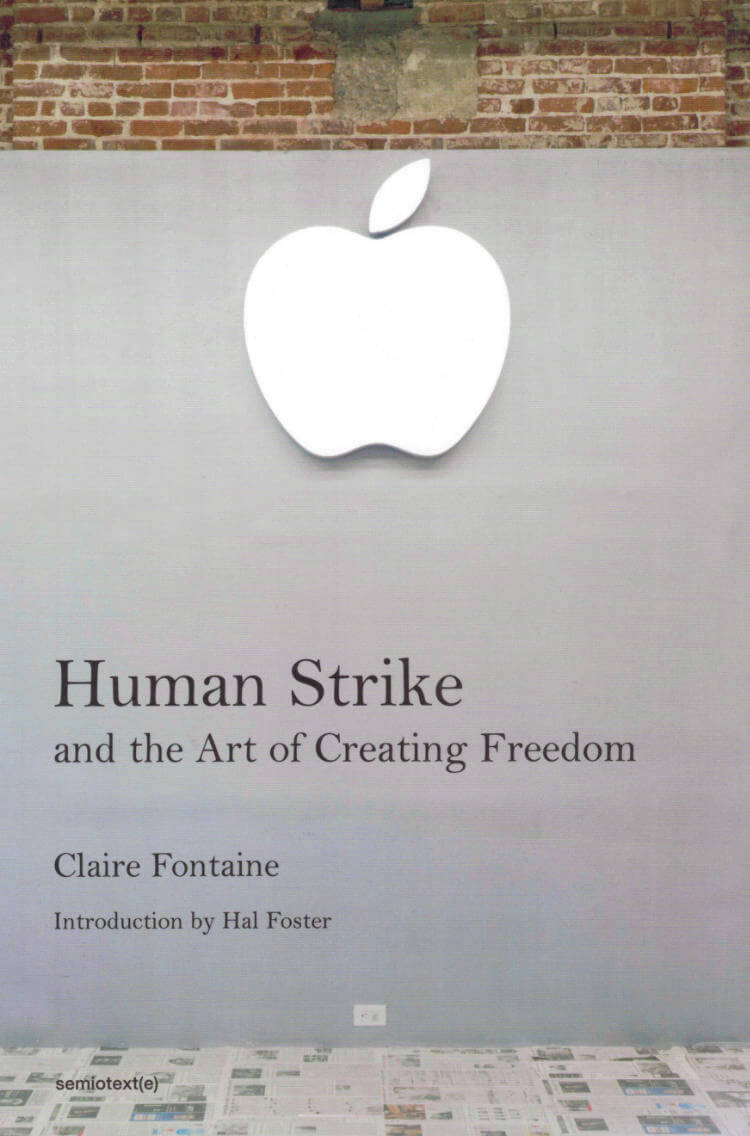
Human Strike and the Art of Creating Freedom
The first English-language publication of writings by the collective artist Claire Fontaine, addressing our complicity with anything that limits our freedom.
This anthology presents, in chronological order, all the texts by collective artist Claire Fontaine from 2004 to today. Created in 2004 in Paris by James Thornhill and Fulvia Carnevale, the collective artist Clare Fontaine creates texts that are as as experimental and politically charged as her visual practice. In. these writings, she uses the concept of "human strike" and adopts the radical feminist position that can be found in Tiqqun, a two-issue magazine cofounded by Carnevale.
Human strike is a movement that is broader and more radical than any general strike. It addresses our inevitable subjective complicity with everything that limits our freedom and shows how to abandon these self-destructive behaviors through desubjectivization. Human strike, Claire Fontaine writes, is a subjective struggle to separate from the inevitable harm we do to ourselves and others simply by living within postindustrial neoliberalism. Human Strike is the first English-language publication of Claire Fontaine's influential and important theoretical writings.
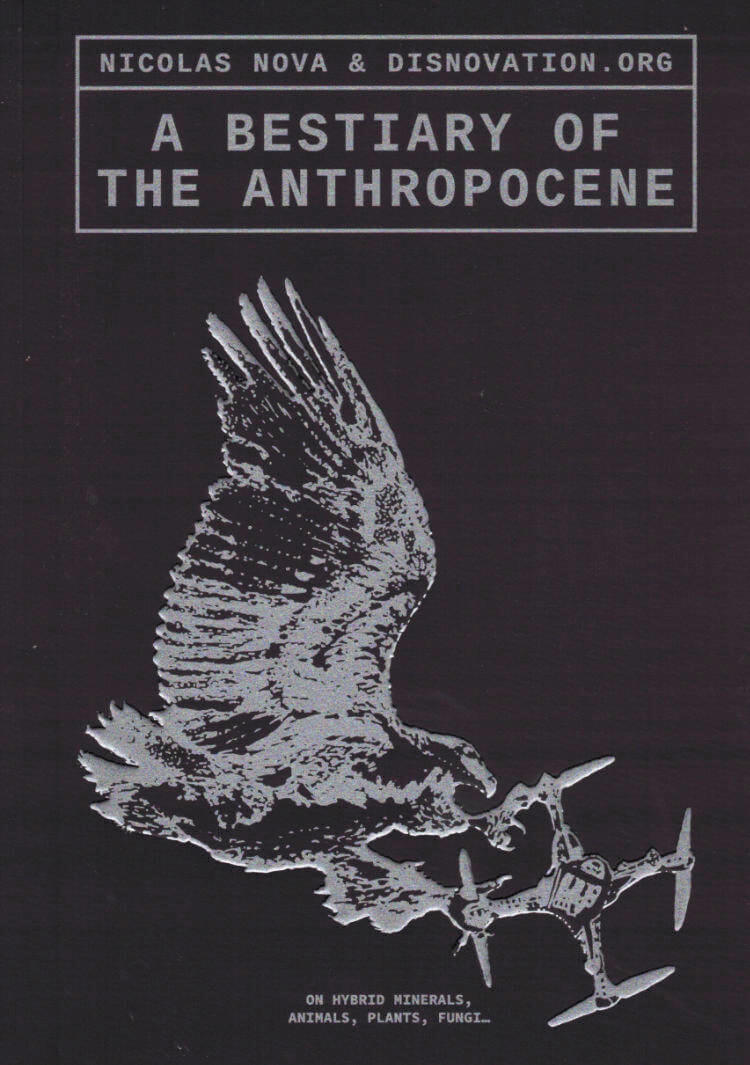
A Bestiary of the Anthropocene
Nicolas Nova, Nicolas Maigret and 1 more
Equally inspired by medieval bestiaries and observations of our damaged planet, A Bestiary of the Anthropocene is a compilation of hybrid creatures of our time. Designed as a field handbook, it aims at helping us observe, navigate, and orientate into the increasingly artificial fabric of the world.
Plastiglomerates, surveillance robot dogs, fordite, artificial grass, antenna trees, Sars-Covid-2, decapitated mountains, drone-fighting eagles, standardised bananas… each of these specimens are symptomatic of the rapidly transforming “post-natural” era we live in. Often without us even noticing them, these creatures exponentially spread and co-exist with us.
A Bestiary of the Anthropocene seeks to capture this precise moment when the biosphere and technosphere merge and mesh into one new hybrid body. What happens when technologies and their unintended consequences become so ubiquitous that it is difficult to define what is “natural” or not? What does it mean to live in a hybrid environment made of organic and synthetic matter? What new specimens are currently populating our planet at the beginning of the 21st century?

Research For People Who (Think They) Would Rather Create
What is artistic research? What is a research document? How do these relate to the making process, invention, and creativity? What exactly is expected of me? If you have ever asked yourself any of these questions, then this book is for you. Research For People Who (Think They) Would Rather Create addresses all relevant aspects that need to be considered during a research and documentation process, such as: finding the right topic and approach; formulating your research question; working out your methods; choosing one or more suitable writing styles; and considering the possible roles of visual, virtual, auditory, embodied, and spatial materials.
Research For People Who (Think They) Would Rather Create shows a multitude of examples from the field of art and design – each of which illustrates one specific aspect of developing a thesis, essay, paper, research document, or however else it may be referred to in your own setting. You can read this book from cover to cover, or you can immediately flip to those subjects which you find most relevant at any given moment. Ultimately, Research For People Who (Think They) Would Rather Create is an invitation to contribute – quite literally, with your own projects, examples, and questions – since the ultimate goal is to help you develop your own research.